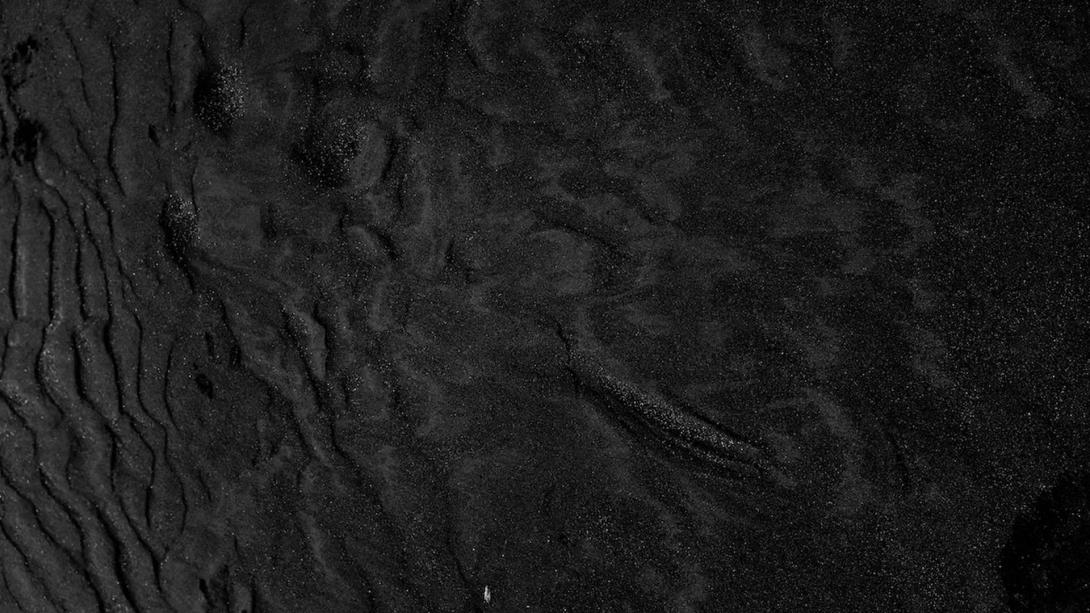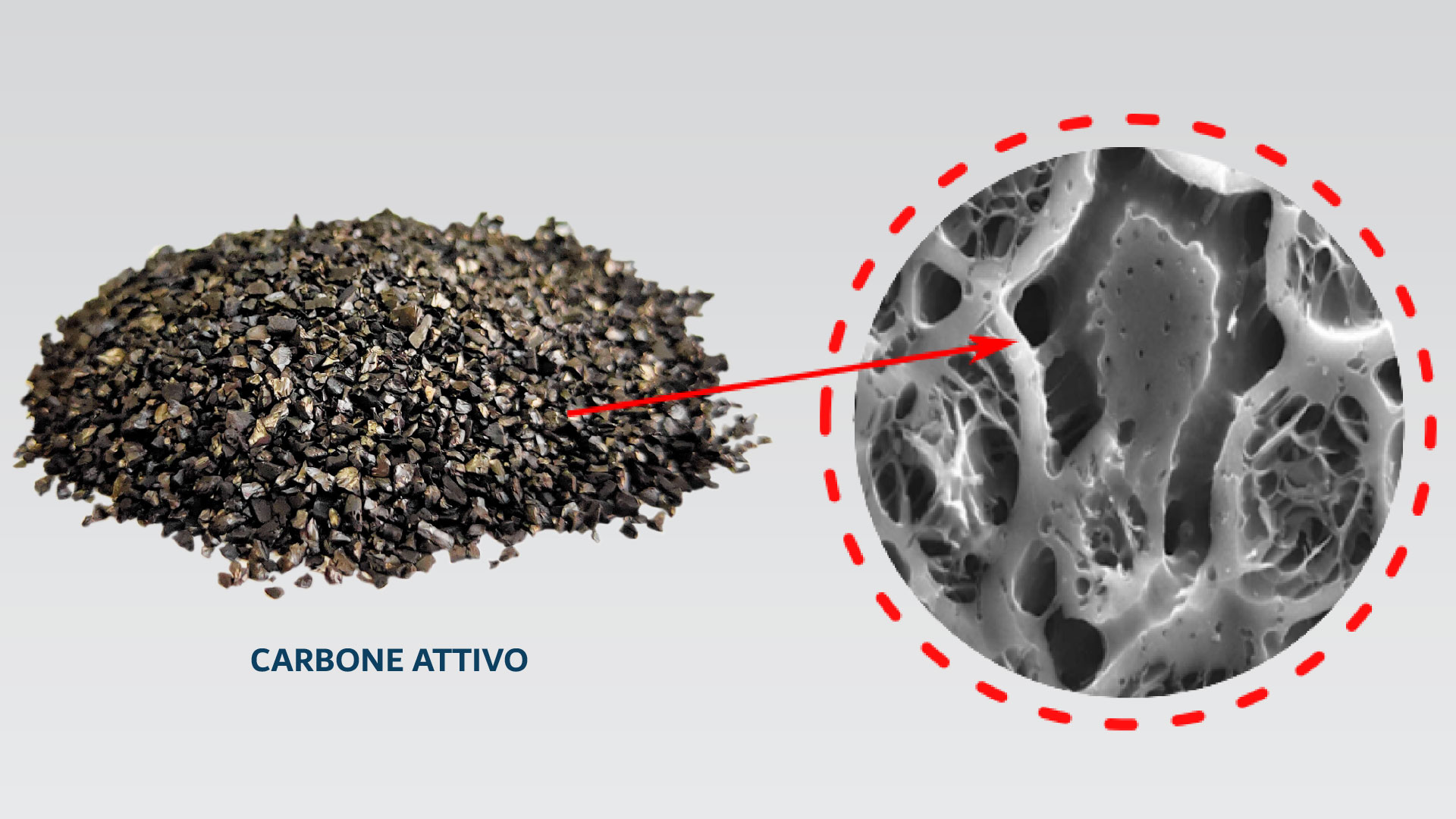
Activated carbon is a material containing amorphous carbon and having a highly porous structure and high specific area (ie high surface area per unit volume).
Thanks to the high specific area, activated carbon is able to retain many molecules of other substances (pollutants, dyes, solvents, hydrocarbons, chlorine), being able to accommodate these molecules on its extensive internal surface area, thanks to its adsorbing capacity.
Activated carbon is used within the filtration , purification, deodorization and discoloration of fluids; it is possible to choose, according to specific needs, between two large families: vegetable carbon and mineral coal.

Vegetable Charcoal
It is a high quality granular activated carbon produced by the physical activation of coconut shells. Thanks to its microporosity and high active surface, this product is particularly suitable for those applications where it is necessary to remove polluting compounds present in low concentration or low molecular weight molecules, for example: chlorinated and aromatic solvents, trihalomethanes and volatile compounds that , in water, they cause an unpleasant taste and smell.
It is used in various applications and in particular the purification of drinking water and process water. It can be activated through specific physical treatments.
Mineral Coal
It is a high quality granular activated carbon, produced by physical activation of selected raw material of mineral origin. It is particularly effective for the removal of organic pollutants, dyes, pesticides, chlorinated solvents, aromatic hydrocarbons, phenols, tannins, chlorine, chloramines, ozone and compounds that cause bad smells and tastes. It can be activated through specific physical treatments.